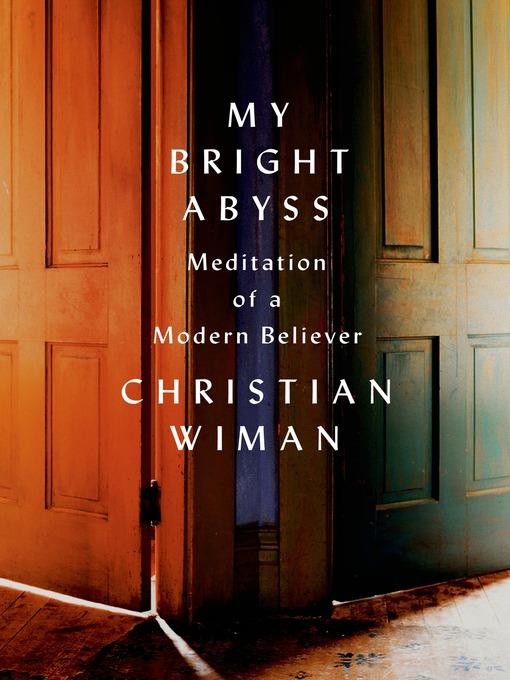
My Bright Abyss
Meditation of a Modern Believer
کتاب های مرتبط
- اطلاعات
- نقد و بررسی
- دیدگاه کاربران
نقد و بررسی

Starred review from February 11, 2013
Wiman offers urgent thoughts on faith and doubt from the foxhole of mortality. Not that many years ago, the poet (Every Riven Thing) and editor of Poetry magazine was diagnosed with a rare cancer. This book of essays springboards from a much talked about 2007 essay that laid out his condition, his dark night of the soul, and his reawakening faith. Like Jacob, Wiman wrestles with that which he will not release until he is blessed—and in fact he was, his cancer apparently in remission. Readers are blessed with the fruit of Wiman’s pain, doubt, and poetic rumination. His exquisite essays have the intimate but choppy feel at times of journal entries, drawn from the deep and refined by a wordsmith, but nonetheless fragments shored against his ruin. A rare bird who flies between religious and secular literary worlds, Wiman may well be the successor to Gerard Manley Hopkins. If you love poetry, the poet will have you in his preface, at “that burn of being that drives us out of ourselves.” This would make a beautiful gift for someone who is serious and seriously ill.

April 15, 2013
A poet approaches the Almighty with halting steps. In the shadow of a recently discovered cancer, Poetry editor Wiman (Every Riven Thing, 2010, etc.) rediscovered faith. Not the faith of his Baptist, Texas youth, but a faith first steeped in the unbelief of modernism. Here, the author attempts to understand and elucidate that faith, and he writes as if readers may not believe him. Thus, he acts as an apologist, but to himself as much as to others. Indeed, Wiman is careful not to allow himself belief in traditional Christianity, but only in a vague and open, yet Christ-centered idea. "Faith is nothing more...than a motion of the soul toward God," he writes. "It is not belief. Belief has objects--Christ was resurrected, God created the earth--faith does not." Structured in short sections, some practical, some wholly creative, Wiman infuses his writing with lyricism and a playfulness with language ("if nature abhors a vacuum, Christ abhors a vagueness"). He augments his own mastery of language with the liberal use of quotations from other poets and writers, spanning an impressive range of literary backgrounds. Wiman's depth of knowledge as a reader truly undergirds this work, as he invokes everyone from George Herbert to Simone Weil, Dietrich Bonheoffer to Seamus Heaney. As the author struggles to understand God, he also struggles to comprehend the institution of Christianity, seeing in it deep flaws, an inability to fully grasp the depth of the God it proclaims, and what he sees as a childish clinging to legend and myth. "Even when Christianity is the default mode of a society, Christ is not," he writes. At times poignant and focused, at other times vague and meandering, Wiman's grasp of the written word carries this unconventional faith memoir.
COPYRIGHT(2013) Kirkus Reviews, ALL RIGHTS RESERVED.

November 1, 2012
An award-winning poet considers what faith and verse have meant to him--particularly as he faces cancer.
Copyright 2012 Library Journal, LLC Used with permission.

























دیدگاه کاربران